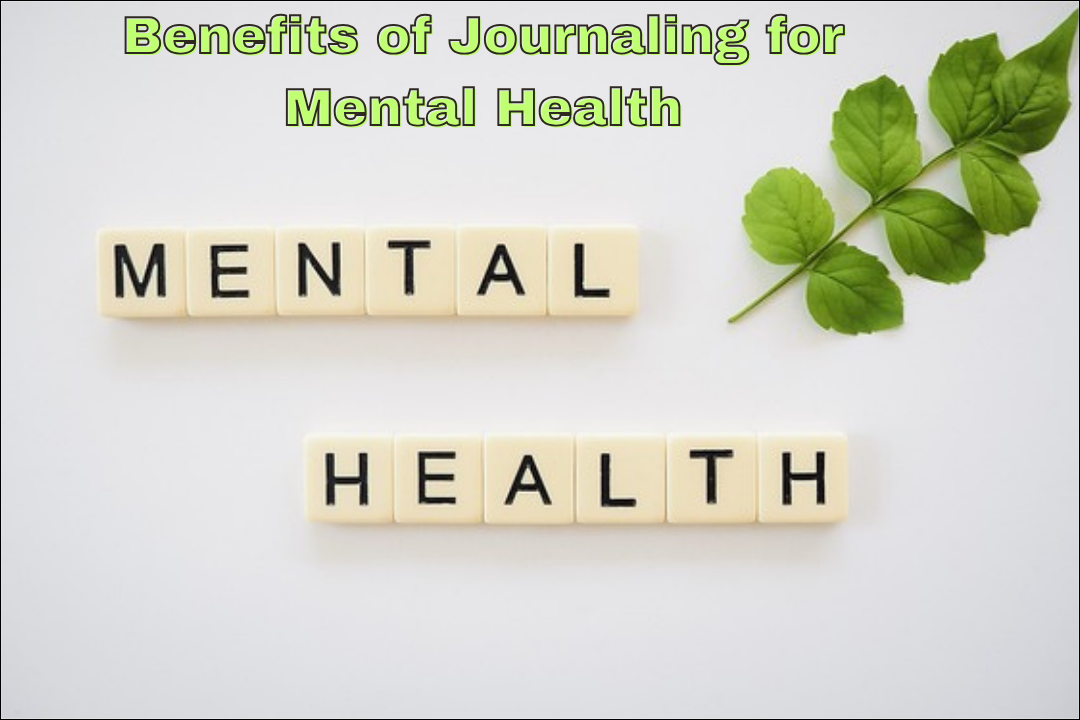The Profound Benefits of Journaling for Mental Health
Journaling has been a trusted tool for centuries, allowing people to organize their thoughts, process emotions, and gain deeper insights into their lives. Today, journaling is recognized as a powerful practice for mental well-being, helping countless individuals reduce stress, enhance self-awareness, and build resilience. This guide explores the wide-ranging benefits of journaling for mental health, offering actionable tips to start your journey.
Understanding the Concept of Journaling
What Is Journaling?
At its core, journaling is the simple act of writing down thoughts, emotions, and experiences. It offers a nonjudgmental space to reflect, release, and record. Whether you’re writing in a traditional notebook or using a digital app, journaling fosters a deeper connection with your inner self.
Brief History and Evolution of Journaling
From ancient scrolls to modern bullet journals, the practice of journaling has evolved. Diaries of historical figures like Anne Frank and Leonardo da Vinci exemplify how documenting daily life can offer insights into human experiences.
Mental Health and Its Growing Significance
Modern Mental Health Challenges
In today’s fast-paced world, mental health challenges like anxiety, depression, and burnout are common. The stigma surrounding mental health is diminishing, and self-care practices are gaining importance.
Role of Self-Care in Mental Wellness
Self-care activities, including journaling, allow individuals to manage stress and prioritize their mental health. Journaling integrates seamlessly into any self-care routine, providing both therapeutic and reflective benefits.
Journaling as a Therapeutic Practice
Expressive Writing Techniques
Expressive writing focuses on articulating emotions without judgment. Techniques like free writing or stream-of-consciousness journaling encourage spontaneity, making it easier to explore deep-seated emotions.
Scientific Studies Supporting Journaling
Research reveals that expressive writing can reduce symptoms of anxiety and depression. Studies show that journaling for just 20 minutes a day improves emotional regulation and stress management.
Emotional Benefits of Journaling
Enhanced Self-Awareness
Journaling fosters introspection, helping you identify patterns in your thoughts and behaviors. Understanding these patterns can lead to meaningful self-improvement.
Emotional Clarity and Regulation
Writing down your emotions allows you to process them constructively. This practice can be particularly beneficial for individuals dealing with complex emotions or past trauma.
Cognitive Benefits of Journaling
Improved Problem-Solving Skills
Journaling helps untangle complicated problems by organizing thoughts. Writing a pros-and-cons list, for example, can clarify decisions and reveal hidden solutions.
Boosted Creativity and Cognitive Function
Documenting ideas encourages creative thinking. Whether brainstorming or reflecting on the day, journaling stimulates mental flexibility.
Stress Management Through Journaling
Reducing Stress Through Expressive Outlets
Stress often stems from unprocessed emotions. Journaling provides a safe space to vent, helping to diffuse tension and anxiety.
How Journaling Mitigates Anxiety
Reframing negative thoughts on paper can diminish their intensity. Writing affirmations or positive experiences fosters optimism.
Enhancing Resilience Through Daily Journaling
Building a Positive Mindset
Regular journaling encourages gratitude, enabling a shift from negative to positive thought patterns. A gratitude journal, for instance, is a powerful tool for cultivating happiness.
Journaling for Gratitude and Growth
Acknowledging achievements and expressing thankfulness through journaling instills resilience, promoting mental strength and optimism.
Structured Journaling Techniques
Gratitude Journals
This method involves listing things you’re grateful for daily. It rewires the brain to focus on positivity, reducing feelings of stress.
Bullet Journaling for Productivity and Mindfulness
Bullet journaling combines organization and mindfulness. With its minimalist approach, it’s ideal for tracking habits, tasks, and emotions.
Tailoring Journaling to Individual Needs
Different Journaling Styles for Different Personalities
Some prefer reflective journaling, while others thrive on structured prompts. Choose a style that resonates with your goals and personality.
Overcoming Writer’s Block
Struggling to start? Use prompts like “What made me smile today?” or “What’s weighing on my mind?” to spark creativity.
Physical Health Benefits Linked to Mental Wellness
How Journaling Can Improve Sleep
Journaling before bed reduces racing thoughts, helping you sleep better. Documenting worries clears mental clutter.
Journaling’s Effect on Chronic Pain
Studies show that journaling about emotions linked to pain can reduce its intensity, illustrating the connection between mental and physical health.
Journaling Apps and Tools to Get Started
Popular Journaling Apps
Apps like Day One, Journey, and Penzu make journaling accessible. They include features like reminders, mood tracking, and customizable templates.
The Convenience of Digital Journaling
Digital tools allow for secure storage and easy searchability, making them perfect for those on the go.
Success Stories of Journaling Transformations
Real-Life Testimonials
Many people credit journaling with transforming their mental health. From overcoming anxiety to achieving personal goals, the benefits are profound.
Journaling in the Lives of Famous Figures
Renowned individuals like Marcus Aurelius and Maya Angelou have used journaling to explore their inner worlds and document their lives.
Journaling Challenges and How to Overcome Them
Lack of Motivation
Set realistic expectations—journaling for even 5 minutes a day is beneficial. Starting small ensures consistency.
Time Management Strategies for Journaling
Incorporate journaling into daily routines, like after meals or before bed, to create a sustainable habit.
Building a Consistent Journaling Habit
Tips for Creating a Sustainable Habit
- Set a specific time each day.
- Use prompts to guide entries.
- Reward yourself for consistency.
Journaling Prompts for Beginners
- “What made me feel grateful today?”
- “What challenges did I overcome?”
- “What is one thing I’m looking forward to?”
Frequently Asked Questions (FAQs)
- How often should I journal for mental health?
Writing daily, even briefly, yields consistent benefits. - Can journaling replace therapy?
While helpful, journaling complements therapy but isn’t a substitute for professional help. - What’s the best journaling method for beginners?
Start with gratitude journals or use simple prompts to ease into the habit. - Do I need to write in complete sentences?
Not at all! Lists, bullet points, or fragments work just fine. - What if someone reads my journal?
Use password-protected digital tools or store physical journals securely. - How long does it take to see benefits?
Many report improvements within weeks of consistent journaling.
Conclusion and Encouragement to Begin Journaling
Journaling is a gateway to improved mental health, offering numerous benefits like stress reduction, emotional clarity, and enhanced self-awareness. Begin your journaling journey today—no fancy tools required. Simply grab a notebook or open an app, and start exploring the transformative power of words.







Thanks for sharing. I read many of your blog posts, cool, your blog is very good. https://www.binance.com/pt-PT/register?ref=KDN7HDOR